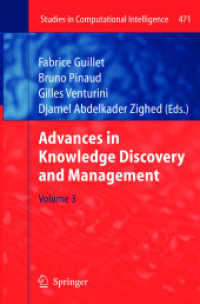- ホーム
- > 洋書
- > 英文書
- > Computer / General
Full Description
We survey several formalisms for cooperative games that have been proposed in the literature, including, for example, cooperative games defined on networks, as well as general compact representation schemes such as MC-nets and skill games.








